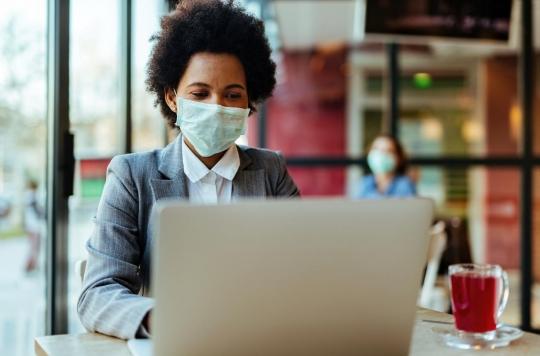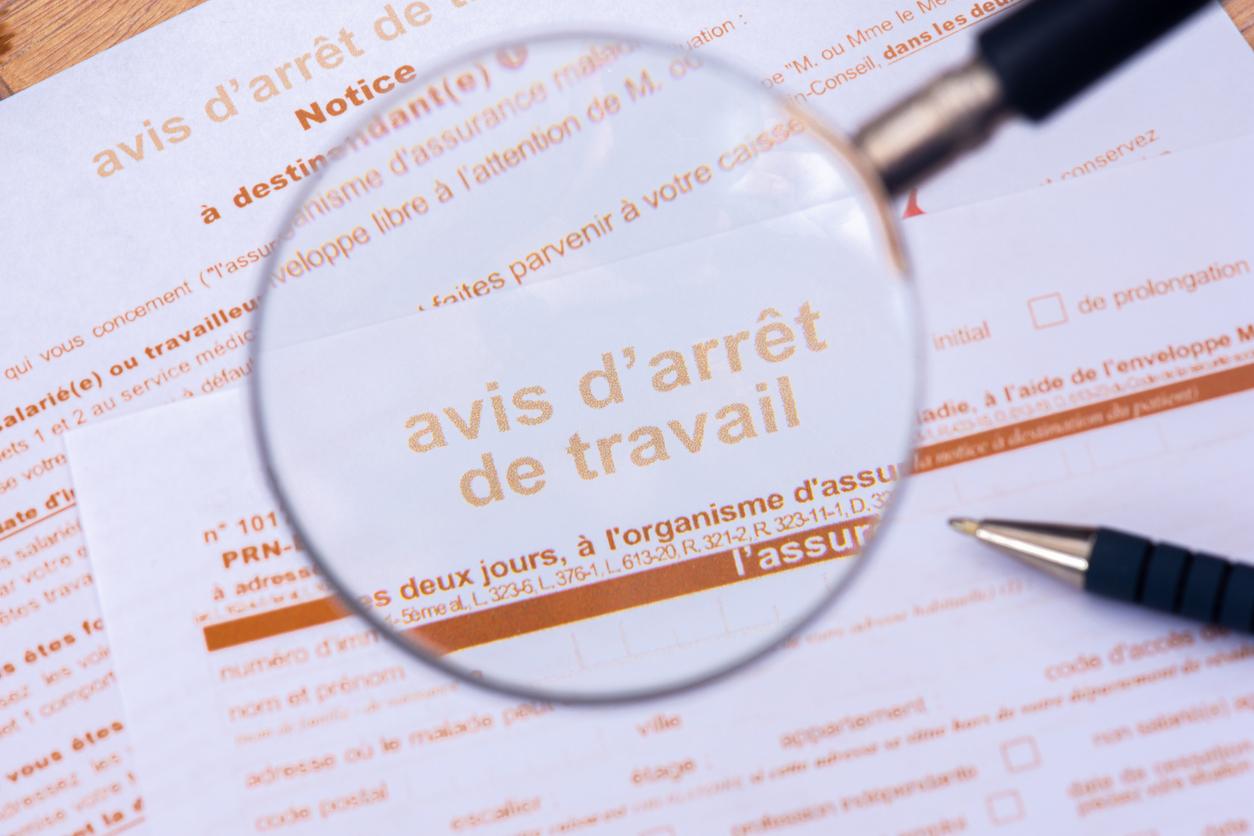Working safely in the time of Covid-19 is a challenge. Between deteriorated working conditions and hygiene measures to be applied, some employers tend to take advantage of the situation. A short guide for employees.

Back to work, but at what cost? Vincent, hairdresser-employee in a salon near Albi, lives the bitter experience of the anguish of being contaminated and especially of contaminating others. “I can see that brushes, curlers and brushes are never disinfected between two clientshe sighs. My boss also provided us with washable masks that can be reused 15 times, but she asked us to wear them 30 times. She’s all about cost saving.“
Similarly, he notes that the toilets remain accessible to customers, against the recommendation of the health form for hairdressing professions in times of Covid-19 drafted by the unions and validated by the Ministry of Labour. Likewise, Vincent is concerned about the simple use of dishwashing liquid to clean the surfaces in contact with the customer. “She just wants us to spray a few drops, she refuses to use real disinfection products because it damages the leather armchairshe assures. She doesn’t want me to take too long to properly disinfect my tools because it reduces the number of clients I can take on. I understand that she wants to replenish the coffers of the salon after these two months off, but for me health comes first.“
Obligation to ensure security but…
Worried about his health and that of customers, he tries in vain to enforce all the health rules without the consent of his boss. “My colleagues do not wear safety visors because it creates fog, I told them that they had to wear them and the next day my boss reproached me for having badly spoken to them without mentioning this problem” he says. Yet employers have an obligation to ensure the physical and mental safety of their employees (article L. 4121-1 of the Labor Code). According to this article, employers must not only prevent the deterioration of health but actually prevent it. Yet despite this injunction, Vincent was disappointed by the response of the Labor Inspectorate: “they replied that there were indeed shortcomings but as it distributes masks and provides hydroalcoholic gel the situation was not urgent.“
This absence ofserious and imminent danger“prevents Vincent from asserting his right of withdrawal, and therefore no longer going to the salon without risking dismissal. However, the mere possibility of being contaminated is not enough at present. “It is recalled that the transmission of the virus takes place through “close contact” with a person already infected, in particular by the emission of infectious droplets during sneezing or coughing which enter the respiratory tract.explains the CFDT in its Q&A questionnaire on Covid-19. At a minimum, the organization of work must allow everyone to carry out barrier gestures.“The union specifies that in the event of prolonged and close contact other measures are necessary such as”the installation of a courtesy area of one meter, by cleaning the surfaces with an appropriate product“and that the employer is required to prevent my risks and inform his employees.
“I know that we haven’t had many cases in the department and that we are in the green zone, but I have the feeling that my boss and the labor inspectorate are taking the pandemic lightly and playing with the words, sorry Vincent. Yet the virus is circulating throughout the country.” If an employee wants to check whether or not he is eligible for the right of withdrawal, he can contact his staff representative, union, labor inspectorate or occupational physician. If he decides to exercise it and his employer attack in court, “it will be up to the courts to assess on a case-by-case basis whether the conditions for exercising the right of withdrawal are met” explains the CFDT. The employee runs the risk of being condemned for ‘abuse of rights’ and “exposes itself to a deduction from salary, a disciplinary sanction or even dismissal for employees in the private sector“.
Classic abuses
If, according to Vincent’s words, his boss seems to do the minimum to guarantee the safety of his employees and customers, it seems that she is overriding his right. “Just before deconfinement, she asked us out loud to make ‘efforts’ by working unpaid overtimerecalls Vincent. She promised to return those hours next year.” A proposal that Vincent was the only one to refuse at the show. Yet according to the law, all extra time decided between employers and employees – provided that the person is not subject to the flat-rate scheme – are due. The employer may offer all or part of the wages of replacement compensatory rest. However, this rest must be taken within two months of the overtime worked. It is then possible to postpone the deadline for two additional months, but it is illegal to offer compensatory rest for the following year. If the employer does not offer any compensation – legal or not – the employee can sue him before the Labor Court up to three years after the offense. If he has any questions, he can get help from a staff representative, union or the labor inspectorate.
However, Vincent’s stubbornness in strictly applying the health sheets against Cvodi-19 in the living room earned him the resentment of his colleagues and his boss. “I find the situation serious for the health of customers and that of staff. But I’m ostracized and belittled every day. The labor inspectorate dissuaded me from filing a case for moral harassment because it is very difficult to provehe says. My boss has suddenly changed her behavior since the crisis. I have the impression that she anticipates a drop in activity and that she is trying to disgust me so that I leave without severance pay.“A situation that resembles the mechanism of psychosocial risks. Employees can find help from their staff representative, union or occupational doctor.
Notes: all the health records validated by the Ministry of Labor
.














